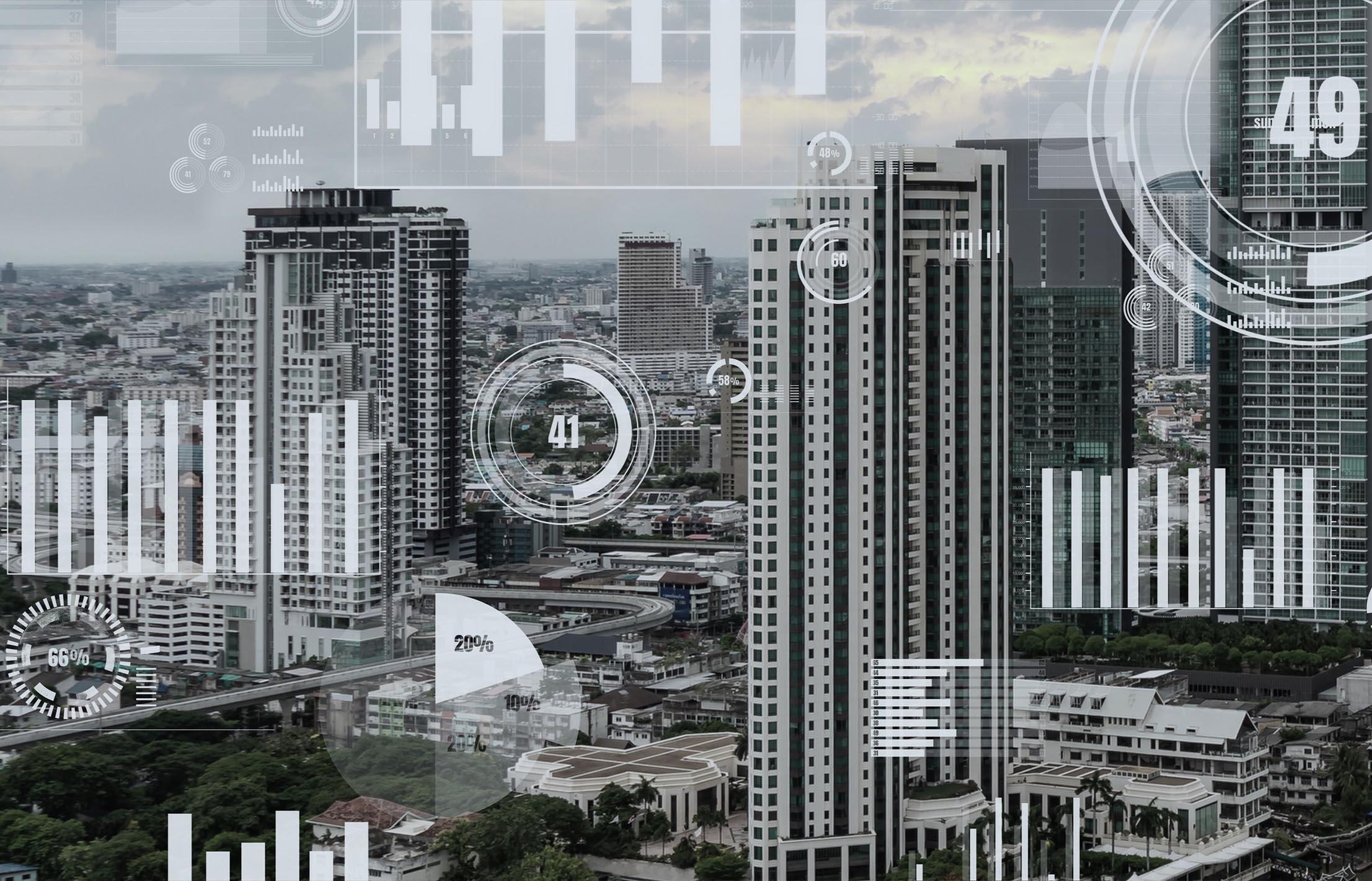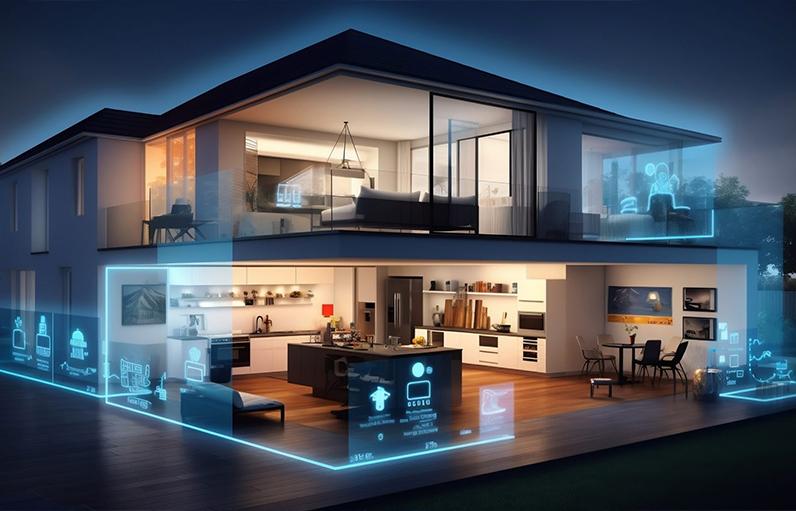
Written by: Mahmoud Demerdash
Date: 2024-05-29
Exploring the Transformation of Residential Real Estate
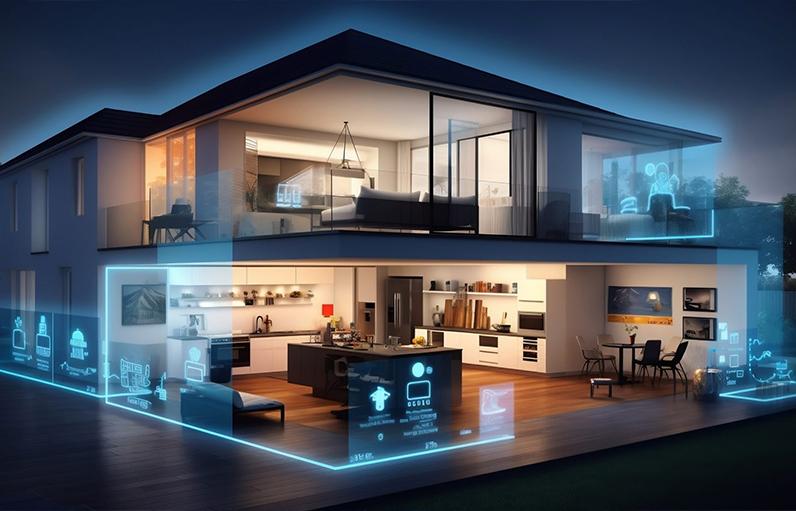
Exploring the Transformation of Residential Real Estate
A profound and exciting shift in residential real estate has been underway in recent years—the rise of smart homes. These innovative dwellings, equipped with cutting-edge technologies, are not just changing how we live, work, and interact with our living spaces but also offering a glimpse into the future of living. For instance, imagine a home where you can control the lights, temperature, and security system with a simple voice command or a tap on your smartphone. From automated security systems that provide peace of mind to connected appliances and energy management solutions that enhance convenience and sustainability, smart homes are reshaping the residential landscape in ways we could only imagine.
One of the most empowering aspects of smart homes is their emphasis on security and safety. Smart locks on doors and windows can be controlled remotely via a smartphone app; homeowners can lock or unlock doors from anywhere, receive notifications when doors are accessed, and grant temporary access to visitors or service providers through virtual keys. Motion sensors are strategically placed indoors and outdoors to detect any unauthorized movement. When triggered, these sensors send instant alerts to the homeowner's smartphone, allowing them to promptly monitor and respond to potential intrusions. The smart home has high-definition video surveillance cameras that provide real-time video feeds of critical areas such as the front door, backyard, and entry points. Homeowners can access live footage or review recorded videos from their smartphone or computer, ensuring constant vigilance over their property. In a security breach or emergency, smart alarms integrated with the security system can sound alerts inside and outside the home. These alarms can be customized based on the type of threat detected, such as intrusion, fire, or carbon monoxide detection, providing comprehensive safety coverage. All security components are integrated into a centralized smart home hub. This hub acts as a control center, allowing homeowners to manage and monitor their entire security system from a single interface, simplifying operation and enhancing user experience. With remote access capabilities, homeowners can monitor their homes from anywhere in the world, receive instant alerts in case of suspicious activities, and even grant access to visitors remotely, adding an extra layer of security and peace of mind.
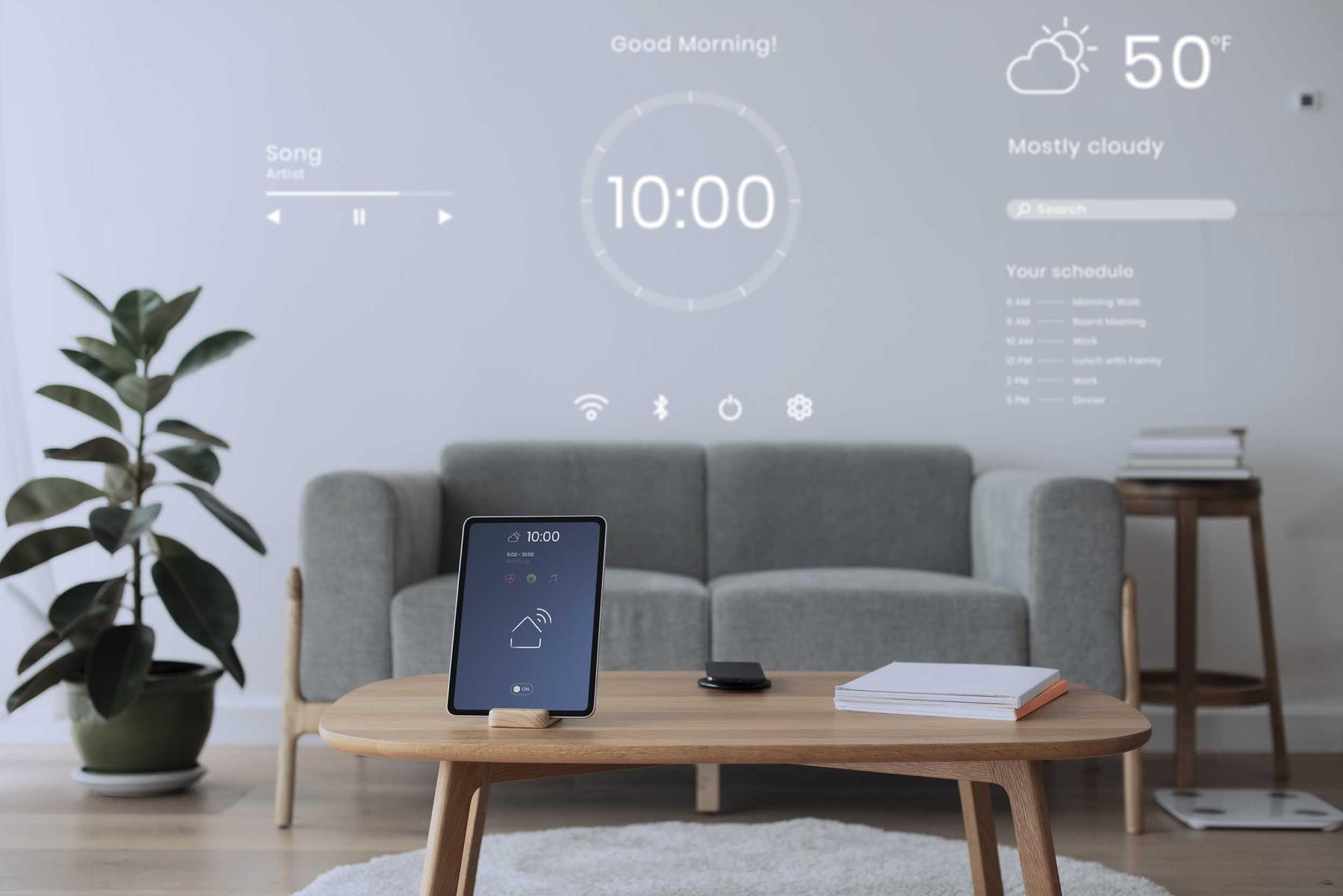
Smart homes are not just about security; they also transform everyday living into a more convenient and comfortable experience. Imagine installing a smart thermostat in your home that learns your temperature preferences and daily routines which can then adjust the temperature automatically based on your schedule, ensuring comfort at home and energy savings when you're away. For example, it can lower the temperature during the night for better sleep and raise it before you wake up. With intelligent lighting solutions, you can control the lights in your home using a simple voice command or through a smartphone app. For instance, you can say, "Turn off the lights in the living room," and the lights will respond accordingly. You can also schedule lighting patterns to mimic your presence while away, enhancing security and energy efficiency. In a smart home, your kitchen appliances can communicate with each other through the Internet of Things (IoT) technology. For example, your smart oven can preheat itself to the right temperature based on the recipe selected on your smart refrigerator's display. Meanwhile, your smart coffee maker can start brewing your favorite coffee as soon as you wake up, all coordinated seamlessly for a streamlined morning routine. Smart home systems often include real-time energy monitoring features that track your energy usage. You can view detailed reports and insights on your energy consumption patterns, identify areas of inefficiency, and make adjustments to optimize energy usage. For instance, you can set energy-saving modes for your appliances during off-peak hours or when not in use, leading to cost savings and reduced environmental impact. Smart homes can integrate renewable energy sources such as solar panels or wind turbines into their energy systems. These renewable energy sources can power your connected appliances and devices, reducing reliance on grid electricity and lowering your carbon footprint. You can also monitor your renewable energy generation and consumption through smart home apps, gaining transparency and control over your eco-friendly initiatives. These interconnected systems enhance convenience and contribute to energy efficiency and cost savings, creating a home environment that is not just secure but also comfortable and relaxing.
Energy management solutions play a crucial role in the sustainability of smart homes, offering significant financial benefits. Smart thermostats, meters, and renewable energy integration enable homeowners to monitor and manage their energy consumption in real time, significantly contributing to cost savings. By optimizing energy usage, smart homes can reduce utility bills by up to 30%, making them an attractive option for eco-conscious homeowners and an intelligent investment for investors. This potential for financial gain can make investors feel optimistic and excited about the future of smart homes in the real estate market.
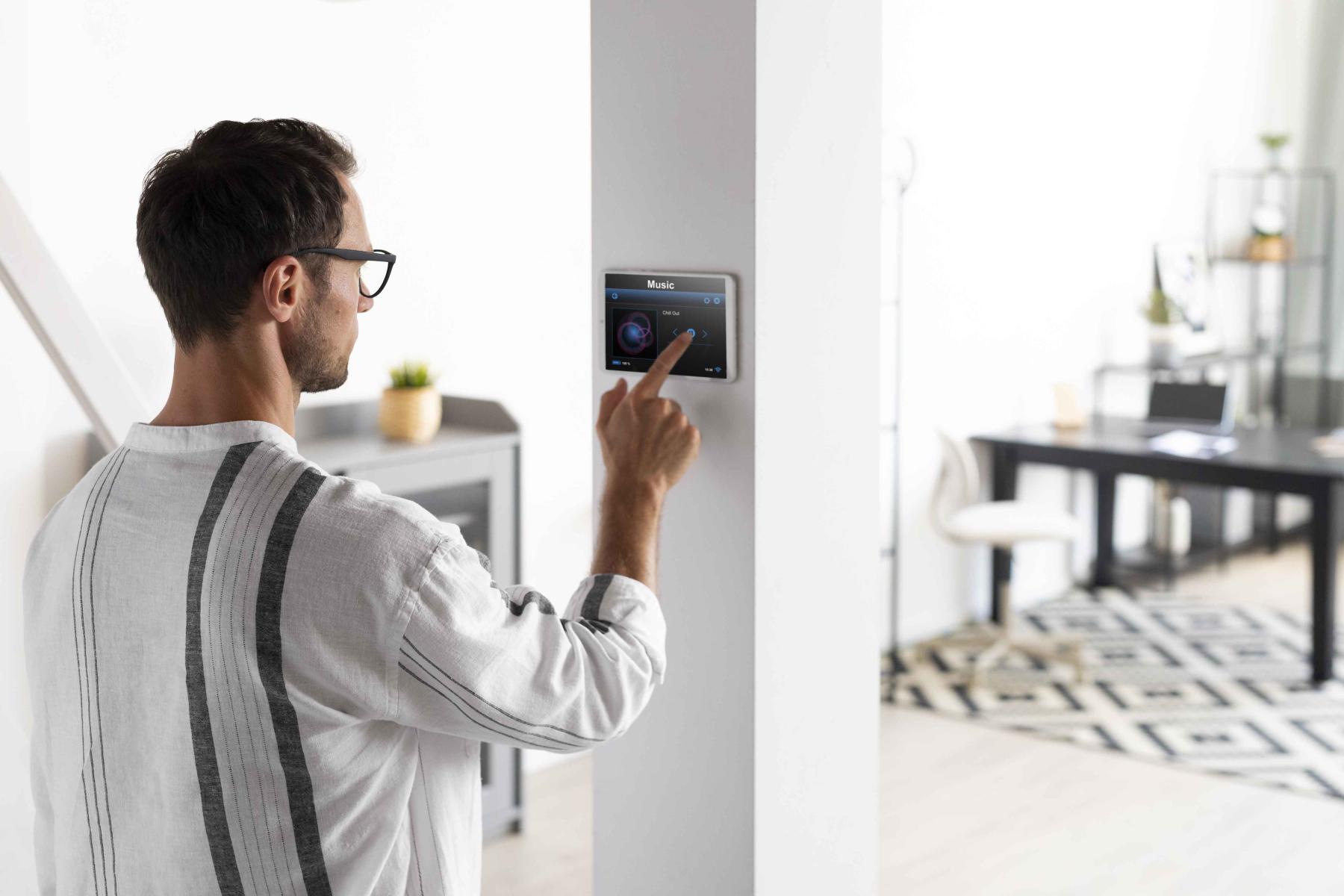
However, smart homes come with challenges and considerations. Privacy and data security concerns, such as the potential for hacking or unauthorized access to personal information, are among the key areas that require attention and solutions. Interoperability issues among different devices and platforms, which can make it difficult for homeowners to integrate all their smart home devices into a single system, and standardized protocols and regulations, which can vary by region and affect the compatibility and functionality of smart home devices, are also important considerations. As smart home technologies evolve, industry stakeholders are actively collaborating to address these challenges and ensure a secure home experience for homeowners.
The rise of smart homes represents a transformative shift in the residential real estate landscape, offering a glimpse into the future of living. With automated security, connected appliances, and energy management solutions at the forefront, smart homes are reshaping how we perceive and interact with our living spaces, driving innovation, sustainability, and efficiency. Looking ahead, we can expect to see even more advanced features in smart homes, such as AI-powered home assistants anticipating our needs and preferences and further integrating with renewable energy sources for a more sustainable and self-sufficient living. As technology advances, smart homes are not just a trend but are poised to become the new standard in modern living, unlocking endless possibilities for homeowners and developers alike.
